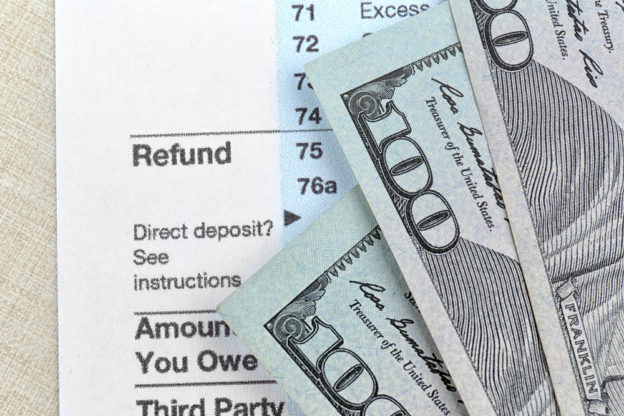It’s that time of year to start asking yourself what you’ll do with your 2023 tax refund. Many are excited to get some cash back but sadly blow through the funds as quickly as they came. It’s time to make a plan on what to do with the money before it gets into your hands. That way, you’ll be able to make better choices and set yourself up for a successful year!
Plan Ahead
Planning ahead will help you to get ahead of your finances. Are you looking to purchase any big expenses this year? Cars, house down payments, large appliances, renovations, college tuition, or a new laptop can all require a hefty up-front sum of money. Keep these in mind before cashing in your refund. Place in your savings what you can for large purchases this year, even if they are months away, to help take off some of the financial stress.
Make A Budget
The best way to control your spending is to create a budget and stick to it. Allocate the amount of money you’d like to save on getting ahead, and try not to waver.
Part of any effective budget is being aware of any outstanding debts. To gain more power and control over your finances, it’s best to pay these off as soon as possible.
Your tax refund may be an ideal chance to reduce debt. If you have a credit card balance that’s due, this is an opportunity to pay that down and help improve your credit score. The same principle applies to car loans, student loans, or other unpaid expenses. The more you put towards them now, the less stress you may have to deal with in the upcoming year.
Invest
If you’re in a good place financially, tax returns can be used to invest in low-cost mutual funds or other less risky options. This can help put you ahead financially by knowing your money will be potentially growing throughout the year, instead of dwindling.
However, investments don’t always have to be purely financial. You can invest in yourself by using some of the money to take a course or learn a new skill, both of which may be beneficial to your financial, mental, physical, and emotional health in the long run.
Save
Lastly, one of the best things you can do with your refund is save it. Whether it’s a rainy day fund or putting towards your IRA, both are great choices.
If you don’t already have a savings account, it’s time to start now. If possible, choose one with the highest interest rate to help your money grow faster.
Emergency funds should have at least 3 to 6 months of your income in case of job or home-related losses. Roth IRAs can help maximize your potential retirement funds before the yearly due date, so be sure to implement them as soon as possible after receiving your refund for a financial boost.

